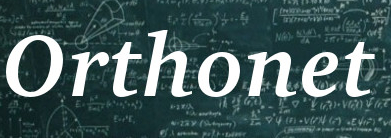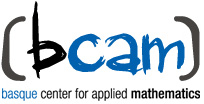La tercera escuela tendrá lugar en en BCAM (Basque Center for Applied Mathematics), Bilbao, durante durante los días 19 al 23 de noviembre de 2018. La dirección de la sede del BCAM es Alameda de Mazarredo 14, 48009 Bilbao, Bizkaia.
La escuela constará de los siguientes tres cursos:
Cursos:
- Título: Chebyshev polynomials.
Profesor: Jacob S. Christiansen.
Abstract: In the course, I’ll discuss the theory for Chebyshev polynomials of compact subsets E\subset\mathbb{C} ( or \mathbb{R}). These are the monic degree n polynomials, denoted T_n, that minimize the sup-norm on E among all such polynomials. A particular goal is to describe the asymptotics of T_n and its norm.
Here you can find the transparences of the sesions: 1st session, 2nd session, 3rd session - Título: From Jacobi polynomials to tilings of a hexagon.
Profesor: Arno Kuijlaars
Abstract: In the first part of the course I discuss the asymptotic behavior of Jacobi polynomials with varying parameters. This is used as a toy model to illustrate the powerful methods of potential theory and Riemann-Hilbert problems. The second part of the course will cover a recent application of Jacobi polynomials with varying non-standard parameters to a random tiling problem of a hexagon. - Título: On Hermite polynomials of a compelx argument.
Profesor: Sundaram Thangavelu
Abstract: As is well known, the Hermite polynomials H_k(x) form an orthogonal system in L^2(\mathbb{R}, e^{-x^2}). Since they are polynomials H_k(x) are defined for complex z. It is natural to ask if they still form an orthogonal system with respect to certain measure on \mathbb{R}^2. In these lectures we investigate this problem using representation theory of the Heisenberg group H^1. We also consider the higher dimensional case and demonstrate how the results can be used to study the heat kernel transform associated to the Hermite operator.
La apertura del curso tendrá lugar el lunes 19 de noviembre a las 9:15 horas. El horario de las sesiones será el siguiente:
| Lunes | Martes | Miércoles | Jueves | Viernes |
9:30-11:00 | A. Kuijlaars | A. Kuijlaars | A. Kuijlaars | A. Kuijlaars | A. Kuijlaars |
11:00-11:30 | Coffee-break | Coffee-break | Coffee-break | Coffee-break | Coffee-break |
11:30-13:00 | S. Thangavelu | S. Thangavelu | S. Thangavelu | S. Thangavelu | S. Thangavelu |
13:00-15:30 | Lunch | Lunch | Lunch | Lunch | Lunch |
15:30-17:00 | J. Christiansen | J. Christiansen | J. Christiansen | J. Christiansen | J. Christiansen |
17:00-18:00 | J. L. López | R. Álvarez | M. Mañas | L. Roncal | B. Eichinger |
18:00-19:00 | Working session | Working session | Working session | Working session | Working session |
Seminarios de investigación: Aparte de los cursos tendrán lugar cinco seminarios. Pinchando AQUÍ puedes descargarte un pdf con un resumen de los mismos, así como el de los cursos de la escuela. Los textos de las seminarios los tienes aquí: R. Álvarez-Nodarse, M. Mañas.
También se pretende dejar tiempo para la resolución de problemas y discusión de los alumnos con los profesores de los cursos.
Organización: La escuela está organizada por los Profs. Óscar Ciaurri (director), Luz Roncal (secretaria) y Renato Álvarez Nodarse (web).

